How do you stay healthy and happy when the world is turned upside down? Students in the interdisciplinary “Understanding Health and Happiness” Triple I class are now putting all of the concepts they’ve been learning over the course of the semester to the test.
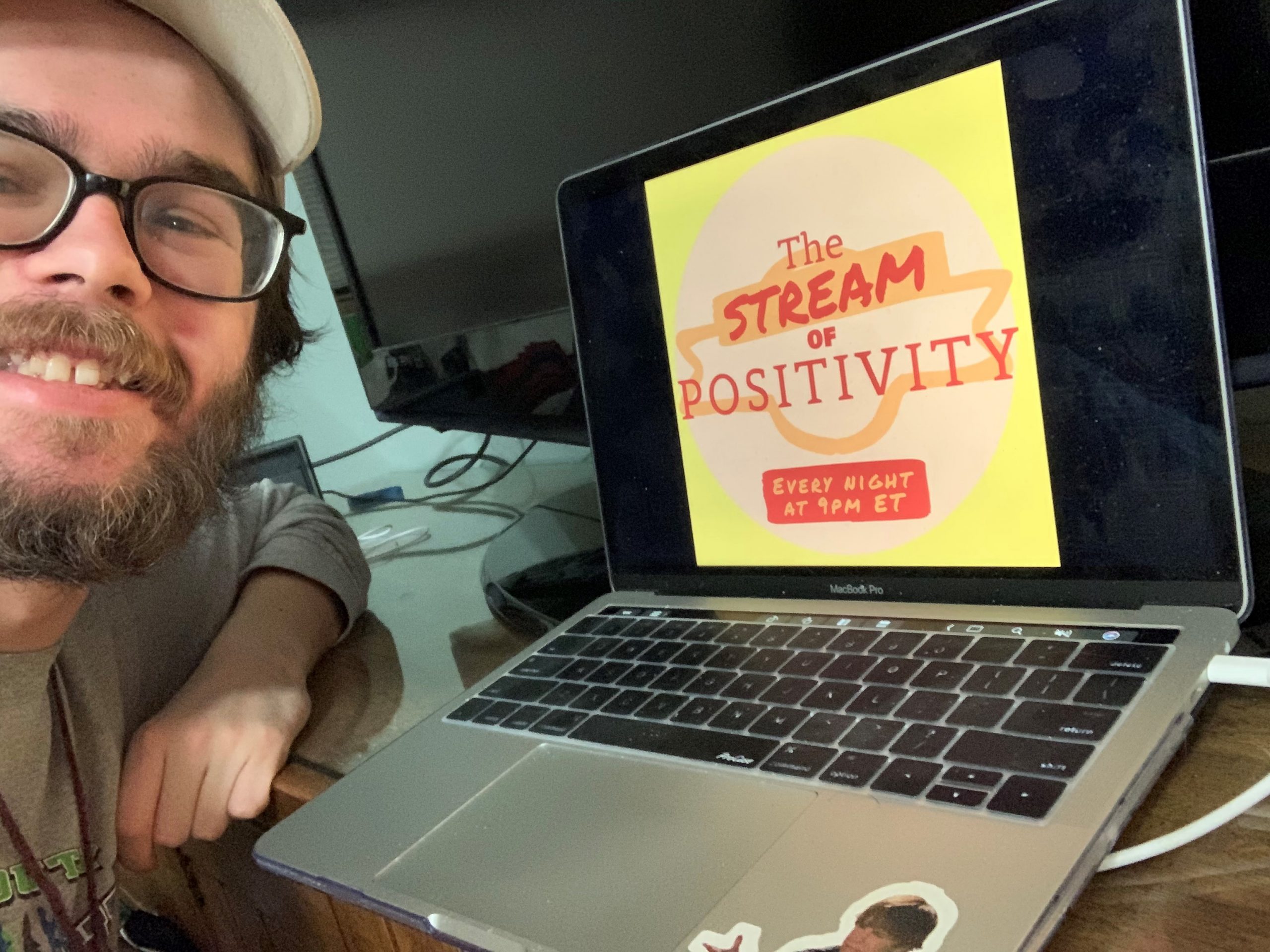
John Krasinski from the television show “The Office” may have a little competition. At the end of March, Krasinsky started a weekly YouTube show, “Some Good News,” to spotlight good news in the midst of the COVID-19 pandemic.
UNC-Chapel Hill student Matthew Wood had a jumpstart on that idea.
He has now posted more than 1,000 positive messages on Snapchat, something he calls the “Snap of Positivity” to help people get through the day. He started his daily social media motivations in high school and has continued them into his first year of college. But it’s become even more relevant in a time where the 24-hour news cycle offers a constant barrage of bad news.
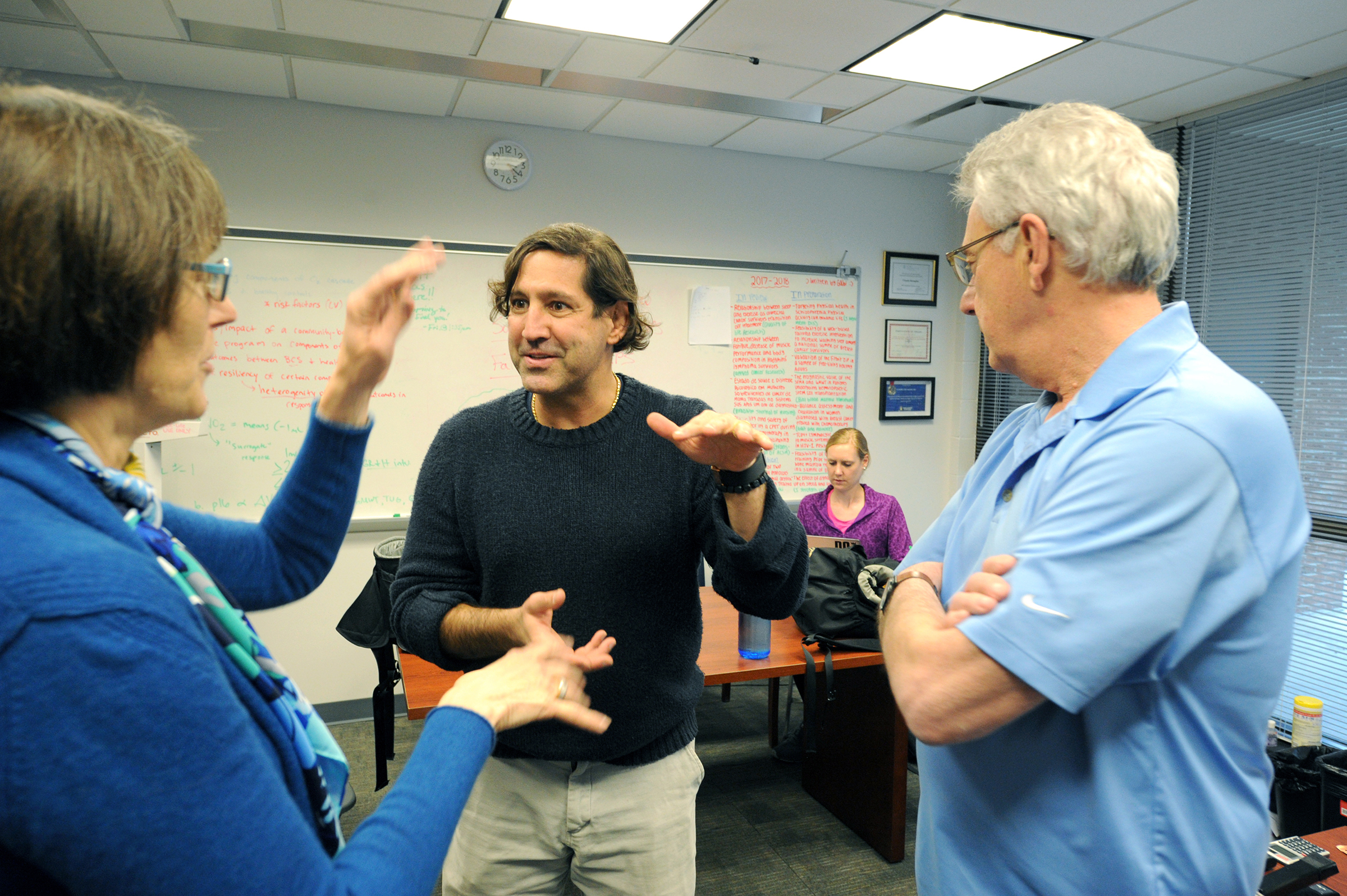
Wood is enrolled in “Understanding Health and Happiness,” a Triple I course in the College of Arts & Sciences led by professors Barbara Fredrickson in psychology and neuroscience, Arne Kalleberg in sociology and Claudio Battaglini in exercise and sport science. [Read a story about the launch of the course last spring.]
Triple I, or “Ideas, Information and Inquiry,” courses are part of the new IDEAs in Action curriculum. The large classes are organized around a broad theme and are team-taught by outstanding faculty members in three disciplines.
“Understanding Health and Happiness” seems all the more relevant in these days of coronavirus-induced social distancing.
After UNC transitioned to online instruction, Wood, a psychology major, continued to practice what his professors are teaching from his home base in Waterford, Michigan, about 45 minutes from Detroit, where he’s hunkered down with his grandfather.
“Michigan has been a real epicenter for what’s going on. We’re near metro Detroit, so being safe is really vital,” he said. “I’ve also been livestreaming every night on Instagram (follow “The Stream of Positivity,” @snapofpositivity), just to interact with people, and I’m starting a project where I’m getting people to send me 10-second videos of something positive that happened during their day.”
But Wood said the class has taught him to realize that it’s also OK to admit you’re not doing OK. It’s important for students to be honest about how they are feeling, and to reach out to others.
“I miss the structure of my classes back on campus, but I’m trying my best. I’m pushing through,” he said. “We all know we’re in a time when being happy is more difficult than usual.”
Fredrickson said the teaching team has stressed the importance to students of taking care of their own mental health during these challenging times. Practicing meditation, acts of gratitude and kindness and building connections with others are coping strategies students have been learning all semester that can be especially useful now.
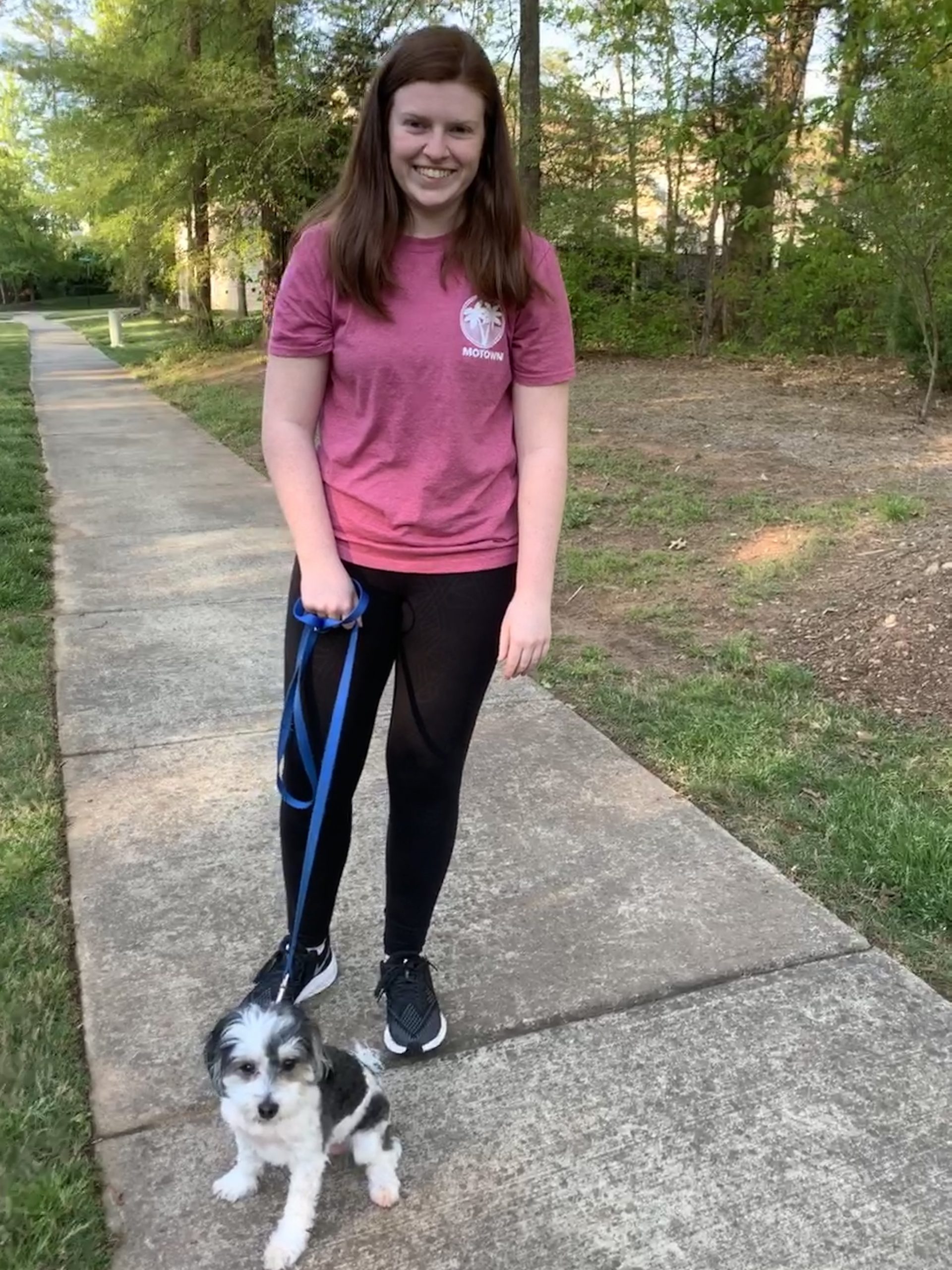
Flocking together
Over the course of the semester, students are divided into flocks, or teams, and required to do three positivity-focused and three exercise-focused activities together. Those flocks have continued to meet via breakout rooms using Zoom.
And they’ve continued to practice flock activities on their own in creative ways.
Junior Alexandra Gray, who is double majoring in psychology and anthropology and is remote learning from Durham, said she and her flock mates participated in a group FaceTime where they all did planking activities to increase their physical strength.
Battaglini, an exercise physiologist, shared with students the importance of staying physically active, while practicing safe social distancing.
“He was talking about the COVID-19 pandemic and how more people are sitting down all day as they are working at home or watching TV, but they need to be sitting less and moving more,” Gray said. “We learned how important exercise is to your health in terms of decreasing your risk of disease.”
She’s tried to build routine and structure into her day and has been going on daily walks with her mom — and her dog.
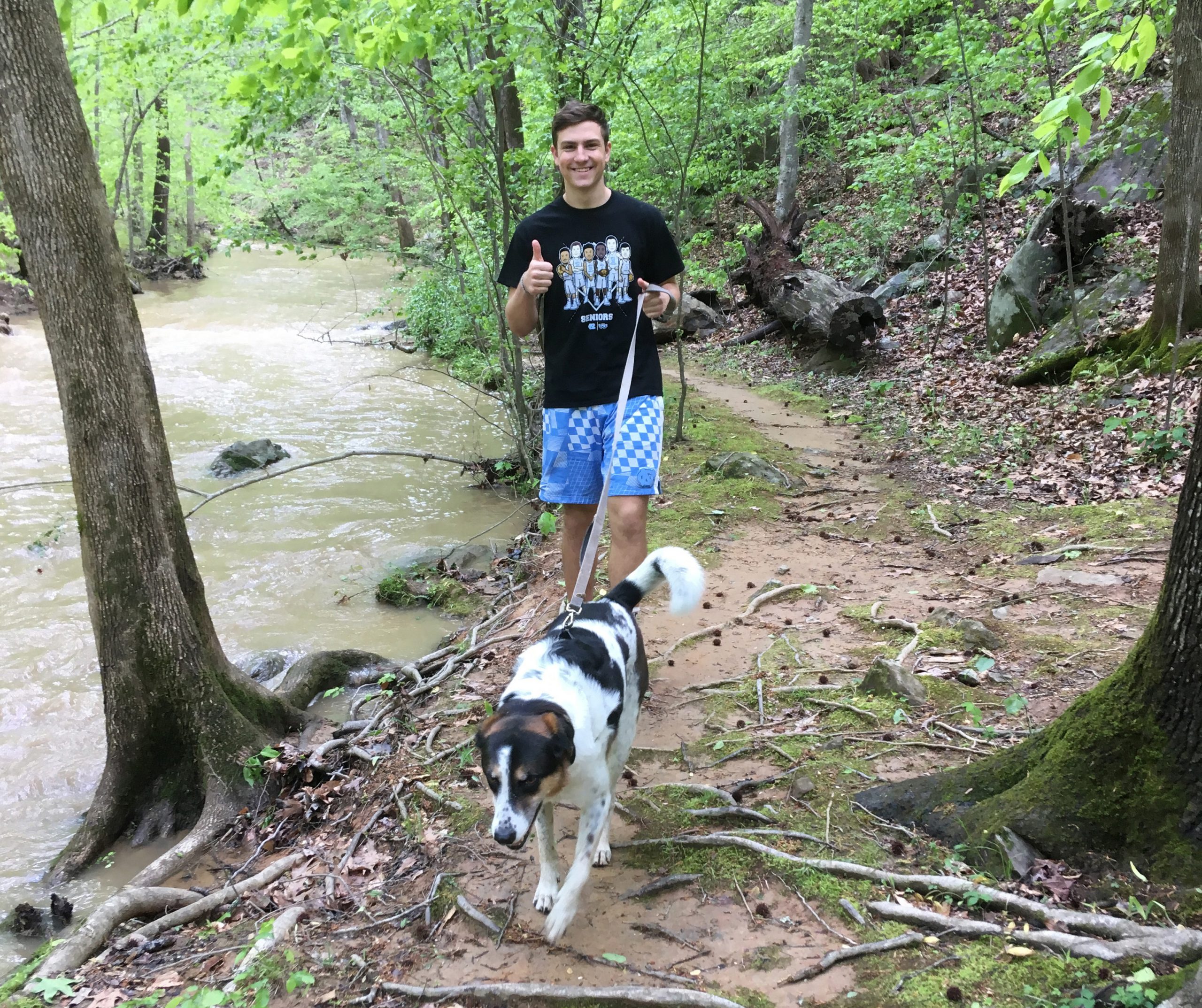
That’s something fellow classmate Ben Gleiter is adopting, too – walking his dog every day, going for a run in the woods and biking now that the roads are less busy.
“I’m just trying to be kind to everybody and to count my blessings,” said Gleiter, a first-year exercise and sport science major who calls Chapel Hill home. “And with the Zoom breakouts, it’s nice to have time to talk to my classmates and to stay engaged and involved.”
The pluses and pitfalls of technology
When it comes to practicing positivity, getting exercise and staying connected to others — all things the three professors are encouraging — there are pluses and minuses to the technology.
Fredrickson says it’s more difficult to experience “positivity resonance” — those shared “micro-moments” of connection between two people — when you can’t meet face-to-face. When you make eye contact with someone, that joy you are experiencing together can ricochet back and forth. She’s the author of Love 2.0: Finding Happiness and Health in Moments of Connection.
Technology makes it harder to do that, and the faculty members have discussed that with the class. But they’ve also encouraged students to stay connected with each other, even if technology can sometimes make that awkward.
“Digital communication can undermine social connection because it’s harder to build off of that emotional energy,” Fredrickson said. “If it doesn’t feel as rewarding as meeting in person, there’s good reason for that.”
Remember the old-fashioned phone call? That can work really well if you’re connecting with one person or a small cohort of people because emotion can be expressed genuinely through voice intonation, Fredrickson said.
“A lot of us have a handful of people we connect with more closely, so we’re also encouraging students to make sure they think about the quality of the time they’re spending with people they may be isolating with at home,” she added.
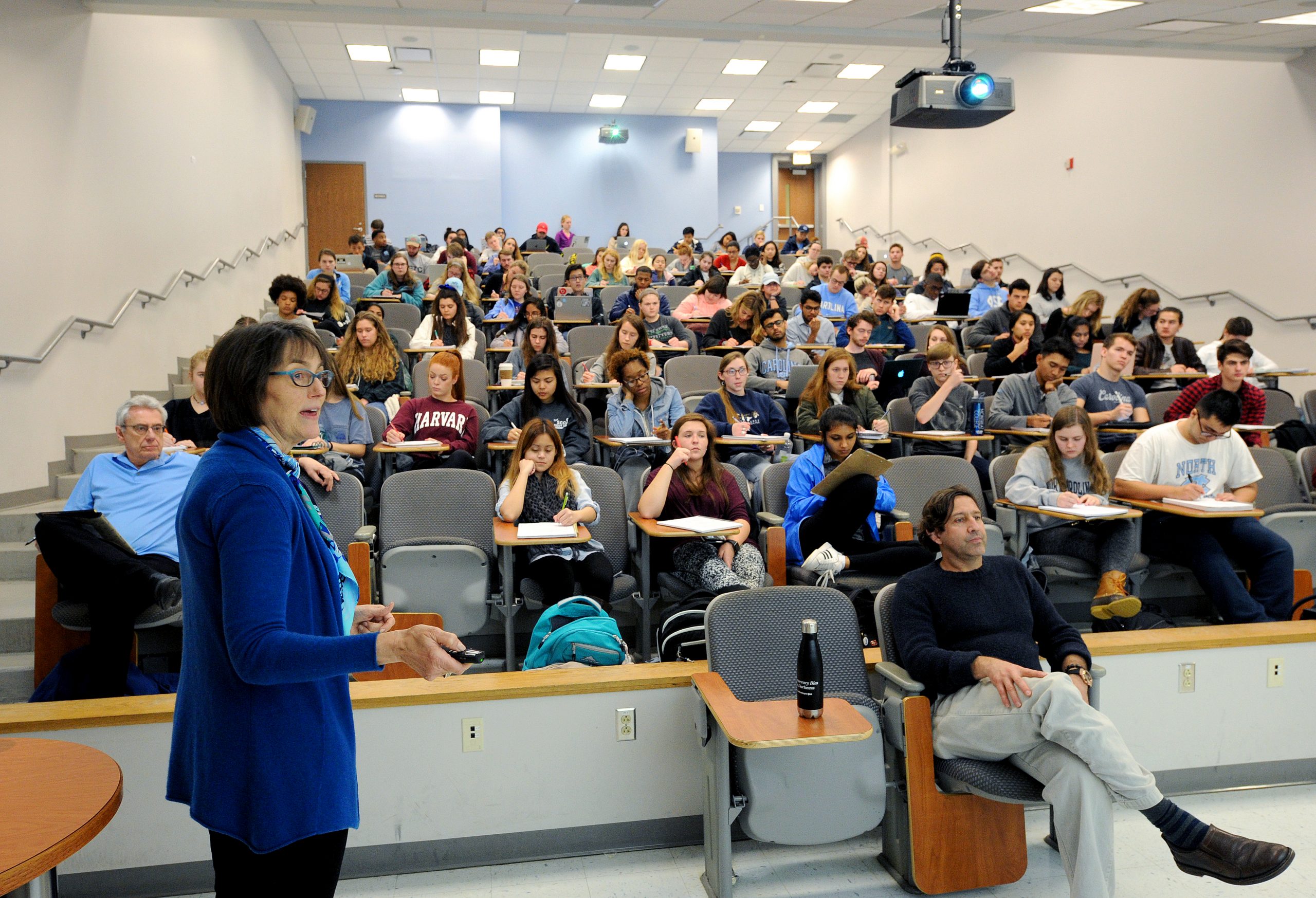
Work, research and happiness
Kalleberg, an expert on work and happiness, has shared with students the kind of occupations that are most at risk during the pandemic and the kinds of jobs most affected by unemployment.
“I’ve been focused on the topic of precarious work, especially the need for social protections —such as health insurance, unemployment assistance and training,” he said. “These are also crucial for one’s health and for high subjective well-being. I’m also concerned with the inequalities associated with health and happiness that are related to differential access to such social protections. The current pandemic brings into stark relief the need for these protections.”
Gleiter said students learned that for a lot of people work is a source of happiness.
“We talked about how this is affecting people who are getting laid off, with only essential workers going to work right now,” he said. “We also learned how some people are happier than others based on social class, gender and more — and how if you’re well off economically, it’s not as stressful as it is for someone who is struggling to pay the rent.”
Battaglini, whose research outside class explores the effects of exercise in clinical populations, has had to employ creative thinking to continue that work.
“For my cancer patients who have recently completed cancer treatments and are somewhat immune-compromised, maintaining rigorous neutropenic procedures to minimize the chances to contract this virus became a priority,” he said.
“Our Get REAL & HEEL Breast Cancer Program has created home-based Zoom sessions for our cancer patients so they can engage in regular exercise in the safety of their own homes.”
Gray, who is interested in the research field of positive psychology, has been working in Fredrickson’s lab and was awarded a Summer Undergraduate Research Fellowship (SURF) to study the impact of gratitude on helping behaviors when faced with setbacks.
“In this Triple I class, we’ve been exposed to researchers at the forefront of their fields,” she said.
By Kim Spurr, College of Arts & Sciences
